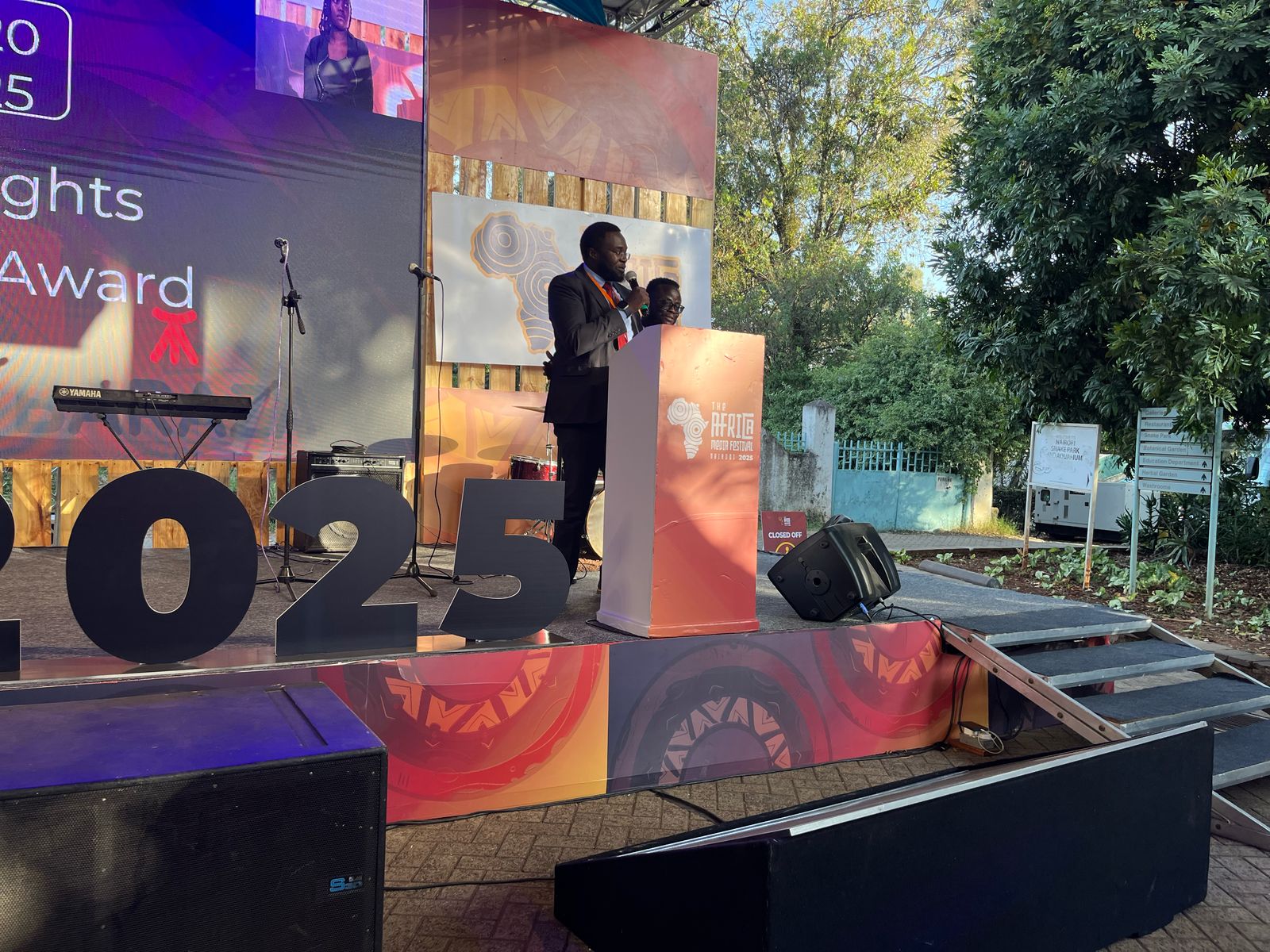Editor's note: the event was held on February 27, 2025 at the National Museums of Kenya.
The Executive Director, Baraza Media Lab, the Executive Director, Journalists For Human Rights, development partners, the media fraternity, the eminent panel of judges, distinguished guests, ladies and gentlemen.
I am deeply honoured to stand before you this evening to deliver these remarks on behalf of the judges and organizing committee as we celebrate the progressive strides made by journalists and media houses. This evening, we honour and recognize the tireless dedication, creativity, integrity and passion of many journalists who continue to shape and positively impact society through their work.
The third edition of the Africa Media Festival, themed “Bridging Gaps, Connecting Media Future,” brought together voices across Africa to explore new pathways in media, creativity and technology. As part of this initiative, 43 journalists from different media houses in Africa submitted impactful stories highlighting serious human rights violations.
For fair and thorough evaluation, an eminent panel was established comprising of seasoned media practitioners, human rights experts from civil society, representatives from Baraza Media Lab and Journalists For Human Rights. They included Oloo Janak, Ellen Wanjiru, Maurice Otieno, Mercy Njoroge, Bernard Ogoi and myself. I was entrusted by my fellow judges to lead this delicate and exciting exercise as the chairperson of the eminent panel of Judges. We carefully reviewed the stories submitted in response to the call that was published by Journalists for Human Rights and Baraza Media Lab on different social media platforms within Africa.
We received a total of 43 stories, with 31 from Kenya, two from South Sudan, three from Nigeria, one from Mali, one from Mozambique, three from Zimbabwe, one from Ghana, and one from the Democratic Republic of Congo. Twenty-two of these stories were submitted by male journalists, 20 by female journalists and two by media houses. These stories had been published on different platforms, with 11 aired on several radio stations, three on different TV stations, and eight published on print media and 21 on online media platforms.
The selection process involved a rigorous evaluation criteria. This criteria entailed alignment with the theme, relevance of chosen topic, originality of the angel, coherence in story telling, presentation of the topic/ audience interests, accuracy, independence and diversity. After thorough and comprehensive review based on these criteria, the judges reached a consensus on journalists that will be recognized for their resilience and courage in covering human rights amid an increasingly volatile political space and shrinking media space. This award, therefore, is not a competition but a recognition of these journalists outstanding work.
We recognize and commend the outstanding quality of submissions from all applicants. The stories showcased remarkable diversity, uniqueness and inclusivity, a clear demonstration and testament of the progressive strides that journalists and media houses have made in enhancing the quality of their reporting that amplifies critical voices and narratives.
On behalf of my fellow judges, I extend our sincere appreciation to all applicants for their excellent submissions. We hope that this serves as a motivation to journalists to speak truth to power. As we reflect on this year’s awards, we recognise the critical role the media plays in shaping and influencing public discourse. We equally must take note of the responsibility that comes with it and we must remain steadfast in upholding ethical principles as the cornerstone of journalism.
A critical, independent and investigative press is the lifeblood of any democracy. The press must be free from state interference. It must have the economic strength to stand up to the blandishments of government officials. It must have sufficient independence from vested interests to be bold and inquiring without fear or favour. It must enjoy the protection of the constitution, so that it can protect our rights as citizens—Nelson Mandela International Press Institute Congress, 1994.
As I conclude, let me congratulate the winners of this year’s edition for setting the bar high. It is our hope, as judges, that this will inspire more media practitioners to excel in their work. To all those who submitted their stories, we recognise and celebrate your efforts. Thank you for your passion, dedication, and belief in the importance of the media. To the organizers, we thank you for your continued support and belief in progressive and transformative media.
Thank you.
Martin Mavenjina,
Chairperson of the Eminent Panel of Judges,
Human Rights Defenders Journalism Award 2025,
Third Edition of the Africa Media Festival.

